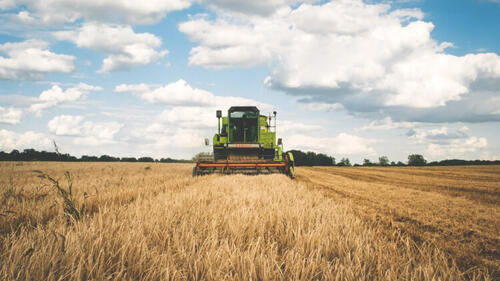
Environmental and social purpose
Alia Fatima reflects on completing a program in the Faculty of Environment

Alia Fatima reflects on completing a program in the Faculty of Environment
By Jon Parsons University RelationsStudying something you love makes it a joy to complete a degree program.
That’s how Alia Fatima describes her time working on a degree in Geography and Environmental Management in the Faculty of Environment at Waterloo.
“I’m passionate about making the world a better place, and I’ve come to see how environmental policy has a direct influence on communities,” she says. “In the end, it all comes down to people. I’m interested in human geographies and in the ways that environmental impacts affect people.”
Fatima has primarily been interested in food systems and how much food goes to waste. It is not that there isn’t enough food to feed everyone, she explains, but that inefficiencies and inequalities get in the way, which can be the result of systems that are broken or broader environmental factors.
“Everyone needs food, no matter how rich or poor you are,” she continues. “Food systems are under enormous stress because of impacts from climate change. That’s why I see sustainability management as so vital, and why I’m looking to do further study in this area.”
For Fatima, sustainability isn’t just a matter of academic study but something she sees as immediately practical. This star student has been involved in events like hackathons, including the Waterloo-sponsored SDG Impact Challenge, which asked students to develop solutions to problems related to the United Nations Sustainable Development Goals (SDGs).
“It was during my third semester at Waterloo, and one of the suggested areas in the hackathon challenged us to think about solving food security in the Kitchener-Waterloo community,” Fatima says. “That’s when I got really interested in sustainability and I started thinking maybe this was something I wanted to pursue as a career. We won the contest and I feel like it opened a lot of doors for me.”

She also says that the whole Faculty of Environment, and several of her professors, created the context for her to succeed. There was an air of collegiality, and she felt personally involved in the direction of her education and that her input mattered.
“There were so many great professors,” Fatima says. “A few that especially stick out are Brent Doberstein, Michelle Anagnostou, Rowland Keshena Robinson and Stephanie Scott. My favourite course, I have to say, was Geography 361, which was on food systems and sustainability.”
Fatima also credits her success in the program to the unwavering support of her family and friends. She says her parents always encouraged her to follow her heart and showed her that she could accomplish anything she set her mind to.
“My sister also went to Waterloo, and she was a big support,” Fatima says. “And I have other great people in my life, too, who have been a huge source of support and motivation. I want to say thanks to Ahmed, Farah and Suhaavi.”
As for what comes next, this star student is currently considering master’s programs and keeping a long-term view on studying environmental law. For now, she has the warmest of wishes for all the graduating students in the Faculty of Environment.
“This time at Waterloo has made a huge impact on me, and I’m so proud to be part of something special and important.”

Read more
Here are the people and events behind some of this year’s most compelling Waterloo stories

Read more
Meet the 14 exceptional students representing Waterloo’s newest grads

Read more
Environment and Arts student, Eloise Fan, reflects on how studying her twin passions led not only to a BES, but also to academic distinction
The University of Waterloo acknowledges that much of our work takes place on the traditional territory of the Neutral, Anishinaabeg, and Haudenosaunee peoples. Our main campus is situated on the Haldimand Tract, the land granted to the Six Nations that includes six miles on each side of the Grand River. Our active work toward reconciliation takes place across our campuses through research, learning, teaching, and community building, and is co-ordinated within the Office of Indigenous Relations.